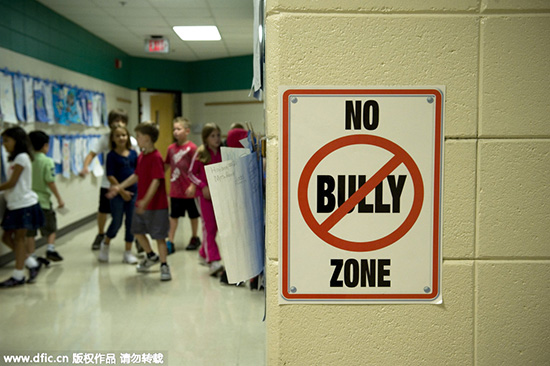 |
|
Bascomb Elementary School takes a proactive approach to curbing the growing problem of bullying in Woodstock, GA, US. Signs are placed throughout the school reminding students what constitutes bullying and urging students to report it if they see it. [Photo/IC] |
An 11-year-old girl was raped and killed on Jan 18, with a suspect surnamed Wei arrested two days later. The man was found to have committed a previous murder in 2010, but he released as he was still a minor. He was also sentenced to six years imprisonment for injuring a girl in 2011, but he was released after the sentence was reduced. Juvenile offenders should be treated differently but proper measures are needed to prevent them from offending again, says Beijing News on Thursday:
The Law on the Protection of Minors is supposed to protect the young, but Wei's case shows it is abused by some young criminals. For example, when he attacked and injured a girl in 2011, Wei was not considered a recidivist because he committed the previous murder at the age of 14. As a result, he got a lighter, instead of a heavier, penalty.
It is common for juvenile criminals to get their sentences reduced. The problem is, no assessments are made of their personalities or the possibility they may reoffend. Yet some of these juveniles are rather cruel, and reducing their punishments is a potential risk to others.
There are many serious crimes committed by minors and increasingly more people have expressed doubts about their age being an excuse for their crimes. It is time to revise the law to promote social justice.
Also, a system to assess the rehabilitation potential of young offenders needs to be established to prevent those likely to commit crimes again on their release from prison from getting reduced sentences.